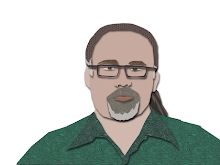As one of his first public discourses, Jesus offers a beautiful synopsis of the mystical world view by quoting Isaiah, that there is hope. He speaks to those that are poor, brokenhearted, captive, blind, or bruised and tells them there is hope. It doesn't hurt to compare the original writing in Isaiah, the first 3 verses of chapter 61.17And there was delivered unto him the book of the prophet Esaias. And when he had opened the book, he found the place where it was written,
18The Spirit of the Lord is upon me, because he hath anointed me to preach the gospel to the poor; he hath sent me to heal the brokenhearted, to preach deliverance to the captives, and recovering of sight to the blind, to set at liberty them that are bruised,
19To preach the acceptable year of the Lord.
Many people of ancient societies saw the world more symbolically than we do today, and sometimes we believe that our way of seeing the world is more modern, mature, and better. We see this need to attach meaning to everything - as primitive and childish. Much of the mystical world view requires a certain willingness to set aside our own prejudices, at least for a time.
So while he spoke of the poor, the blind, and the brokenhearted, I believe that many would have understood him to speak more of those who felt this way emotionally. To those who felt they have an empty life (poor), or who feel disillusioned or that life holds many unmet expectations (brokenhearted), or who feel trapped (captive), or even can't see another way to live life (blind), or to those who just simple feel beaten down and hopeless -- to all of these Jesus speaks the mystic's message, there is another way to see the world. That life has hope.
I believe Jesus chose Isaiah for a reason. To me, when I read Isaiah, I see a particular message repeated over and over again, almost like Bach takes a musical motif and repeats it in endless ways - forwards, backwards, stretched out, shortened, in contrast to itself, and many other variations. Here is the message of Isaiah, as I understand it:
- To those who feel beaten and downtrodden by life
- You feel pain because of how you see the world
- But there is hope
- There is another way to see
- Through at-one-ment [a.k.a truth, a.k.a G-d, a.k.a the mystical world view, a.k.a. enlightenment, a.k.a. nirvana, a.k.a many other terms]
- Mountains - often mean obstacles and challenges (can also mean goals or achievements)
- Valleys - usually denote depression, as in the valley of despair, or of the shadow of death
- Road - represents finding ones way. when you are lost and find a road, you know that it leads somewhere
- God - Truth, Unity, Oneness, Aleph, the Beginning
- One - God, Unity, Truth, Aleph (the Hebrew letter A), the mystic's way of seeing the world
- Wilderness - A state of being barren, a barren soul, unnourished
- Garden - A bountiful and full soul. A soul that has found peace, contentment.
- Crookedness - represents confusion, many voices, insecurity
- Rough Places - a period of difficulty, hardship, tough times (like tough economic times)
Christian's often quote the following verses as a prophecy of John the Baptist, whose voice was "crying in the wilderness." If you read it using the symbols above, it takes on a whole new meaning, one of hope and solace for those who live, "in the wilderness."
From Isaiah, chapter 40, verses 3 and 4
3 - The voice of him that crieth in the wilderness, Prepare ye the way of the LORD, make straight in the desert a highway for our God4 - Every valley shall be exalted, and every mountain and hill shall be made low: and the crooked shall be made straight, and the rough places plain:For some of you, as you read these two verses, perhaps a new way of seeing these verses jumped out at you. At the risk of simplifying too much, I will repeat the elements within the verses with my own interpretation.
- The voice of him that crieth in the wilderness [to those who are in pain - in THEIR OWN wilderness]
- prepare ye the way of the LORD [there is hope. get ready for hope]
- make straight in the desert a highway for our God [you will find truth, or truth will find you]
- Every valley shall be exalted [your sorrows will be lessened]
- and every mountain and hill shall be made low [your obstacles will be removed]
- and the crooked shall be made straight [you will find the way in the midst of chaos and multiple voices]
- and the rough places made plain [and the hard times will be over]


